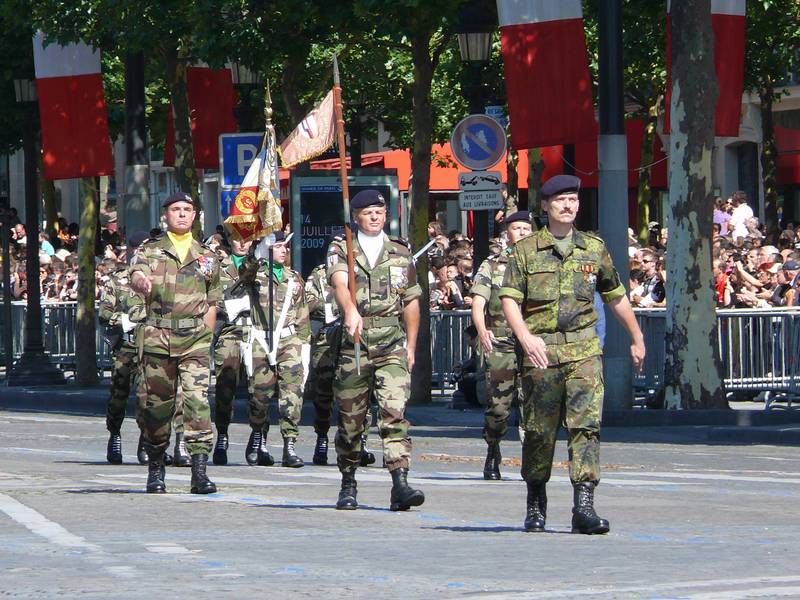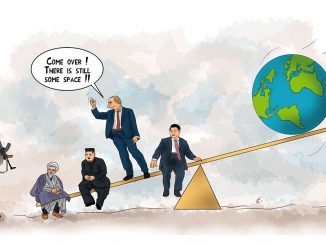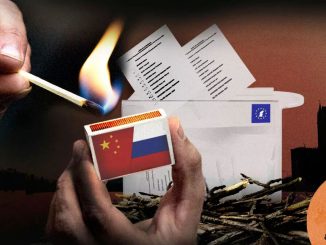The Epstein case is back in the news.[1] Among those who have worked on this issue, there are several authors whose books we will present here, as they are considered authoritative. The first of these in the United States is Graig Unger.
Table of Contents
by Joël-François Dumont — Paris, July 31, 2025 —
After graduating from Harvard University in 1971, Craig Unger launched a distinguished career as an investigative journalist and author.
He began in print journalism, writing for publications like the Boston Phoenix and the Real Paper. His early career also took him to France, where he co-edited Paris Metro.

Upon returning to the U.S., he held several prominent positions at major publications. He was a longtime contributing editor for New York Magazine and later for Vanity Fair for 15 years, where he covered critical topics like national security and foreign affairs. He also served as the editor-in-chief of Boston Magazine and deputy editor of The New York Observer.
Alongside his journalism, Unger has authored numerous influential investigative books. His major works include House of Bush, House of Saud, and his more recent explorations of Donald Trump’s connections to Russia, House of Trump, House of Putin and American Kompromat.
Today, leveraging his extensive expertise, he is also a frequent political analyst on major news networks such as MSNBC and CNN.
Craig Unger’s Investigations into Trump’s Russia Ties: “House of Trump, House of Putin” and “American Kompromat”
Journalist Craig Unger has penned two provocative books, House of Trump, House of Putin: The Untold Story of Donald Trump and the Russian Mafia (2018) [2] and American Kompromat: How the KGB Cultivated Donald Trump, and Related Tales of Sex, Greed, Power, and Treachery (2021),[3] that delve into the alleged decades-long relationship between Donald Trump, his business empire, and Russian interests, including organized crime and intelligence agencies.
The books argue that these connections are not coincidental but rather the result of a calculated, long-term effort by Russian entities to cultivate and potentially compromise a future American president.


House of Trump, House of Putin: A Trail of Money and Influence
In his first volume on the subject, Unger traces the origins of Donald Trump’s involvement with Russian money back to the 1980s.
The central thesis of House of Trump, House of Putin is that Trump’s real estate ventures provided a perfect vehicle for laundering money for the Russian mafia, which was flush with cash following the collapse of the Soviet Union. Unger details how Trump’s properties became attractive investments for a wave of Russian oligarchs and individuals with alleged ties to criminal organizations.
The book posits that this financial relationship was not merely opportunistic but was actively fostered by individuals connected to Russian intelligence. Unger identifies key figures who allegedly facilitated these connections, weaving a complex narrative of business deals, social interactions, and political maneuvering. The book suggests that by the time Trump entered the political arena, he was already deeply entangled with a network of Russian influence that saw his presidency as a strategic victory.
Critical reception for House of Trump, House of Putin was mixed. Supporters praised Unger’s extensive research and his ability to connect disparate events into a cohesive and alarming narrative. They pointed to the book as a crucial exposé of the underbelly of global finance and its intersection with political power. However, critics argued that while Unger presented a compelling case built on circumstantial evidence, he lacked a “smoking gun” to definitively prove a coordinated conspiracy. Some reviewers felt the book relied too heavily on suggestion and innuendo, and that it presented a one-sided view without sufficient counter-argument.
American Kompromat: The Allegation of a Cultivated Asset
Building on the foundation of his previous work, American Kompromat takes a more direct and explosive stance, explicitly labeling Donald Trump as a Russian asset cultivated by the KGB for decades. The term “kompromat,” Russian for “compromising material,” is central to the book’s argument. Unger contends that from Trump’s early business dealings and visits to Moscow, he was identified by Soviet intelligence as a potential target for recruitment.
The book draws on interviews with former KGB officers and other sources to allege that Trump was gradually groomed, flattered, and potentially compromised through his business vulnerabilities and personal life. American Kompromat expands its scope to include the broader world of “kompromat,” implicating other powerful figures and suggesting a systemic use of compromising information as a tool of statecraft by Russia.
Similar to its predecessor, American Kompromat garnered both praise and skepticism. Proponents lauded it as a courageous and necessary investigation, shedding light on what they see as a grave threat to American democracy. They highlighted Unger’s sourcing, including on-the-record interviews with former intelligence officials, as giving weight to his claims. Conversely, critics again pointed to the speculative nature of some of the book’s conclusions. They argued that while the connections Unger draws are intriguing, they do not amount to irrefutable proof of Trump being a witting agent of Russian intelligence. The book was also criticized in some quarters for its broad and sometimes tangential narrative, which occasionally strayed from the central thesis about Trump.
The Author: An Investigative Journalist with a Focus on Power and Secrecy
Craig Unger is an experienced investigative journalist with a history of tackling complex and controversial subjects. Before his books on Donald Trump, he authored House of Bush, House of Saud,[4] which explored the intricate financial and political ties between the Bush family and the Saudi royal family. This earlier work established his reputation for delving into the often-opaque connections between powerful dynasties and their far-reaching influence.
Unger’s journalistic style is characterized by meticulous research and the synthesis of vast amounts of information from public records, interviews, and investigative reports. His work often focuses on exposing what he sees as the hidden networks of power and influence that operate beneath the surface of official narratives. While his conclusions are often bold and provocative, they are rooted in a detailed examination of the available evidence, even if that evidence is, at times, circumstantial. This approach has made him a respected, if sometimes controversial, figure in American journalism.
Joël-François Dumont
[1] See « The Cesspool and Chaos: the Russian Connection in the Epstein Affair » by François Thom in Desk Russia (2025-0730)
{2] House of Trump, House of Putin: The Untold Story of Donald Trump and the Russian Mafia (2018) published by The Random House. ‘House of Trump, House of Putin’ is both a page-turning thriller and an epic tale of intrigue, drama, and shady dealings, reported from the frontline of a new Cold War. Drawing on original research, exclusive sources, anonymous, tips, and leaked and never-before-seen documents, Unger is the first reporter to unravel Trump’s long, tangled history with Vladirmir Putin and the Russian mafia, to fully grasp the significance of Russia’s ambitions to destabalise the West. Source: East Riding Libraries.
[3] American Kompromat: How the KGB Cultivated Donald Trump, and Related Tales of Sex, Greed, Power, and Treachery (2021). This is a story about the dirty secrets of the most powerful people in the world including Donald Trump. It is based on exclusive interviews with dozens of high-level sources intelligence officers in the CIA, FBI, and the KGB; thousands of pages of FBI investigations, police investigations; and news articles in English, Russian, and Ukrainian. American Kompromat shows that from Trump to Jeffrey Epstein, kompromat was used in operations far more sinister than the public could ever imagine. Among them, the book addresses what may be the single most important unanswered question of the entire Trump era: Is Donald Trump a Russian asset? Source : Buckkatalog.
[4] House of Bush, House of Saud (2004). In this book, Craig Unger explores the relationship between the Saudi Royal Family and the Bush extended political family. Unger asserts that the groundwork for today’s terrorist movements and the modern wars that have sprung up about them was unintentionally laid more than 30 years ago with a series of business deals between the ruling Saudis and the powerful Bush family. The Saudis received investments and military protection in exchange for cooperation on lucrative oil deals. The author claims that the result has been a shady alliance between “the world’s two most powerful dynasties.” Source : Wikipedia.











